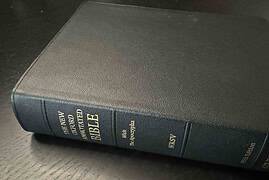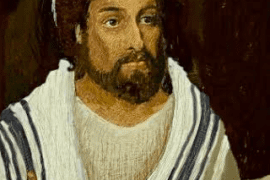For the next few weeks I plan to post many of my previously published articles that have fallen off the radar of many of my readers. Some, but not nearly all, are available as PDFs on this Blog site under “Publications and Papers,” in the dropdown menu above labeled “Academic.” I am searching out everything and will upload them here one by one until everything is hyperlinked. It is a fairly solid “body of work,” supplementary to my ten published books, that has shaped my career over the past forty years.
In that regard, if you are not aware of the site Academia.edu you might want to explore it a bit. You can search for topics or names of scholars and Biblical Studies, along with just about every other academic field, are well represented. You will find there that many of your favorite scholars have uploaded many of their publications. It is a rich and endless source for browsing and deeper study.
Today I post this article I wrote in 1993 titled: “Israel and the Plan of God: Luke’s Understanding of the Future of Israel, ” in the Journal of the Radical Reformation 2 (1993):22-38. I use “Luke” as the traditional name of the author of the fascinating two-volume work, now embedded and separated in our New Testament, known as the gospel of Luke and the book of Acts. Most scholars date this work to the late 1st or early 2nd century. When it comes to Luke-Acts, two classic bedrock studies are H. J. Cadbury, The Making of Luke-Acts, London: S.P.C.K., 1968 (first published, 1927) and Hans Conzelmann, The Theology of St. Luke, N.Y.: Harper and Row, 1960 (ET-G. Buswell). You will find other references throughout the article.
In this article I take as my starting point the so-called “Magnificat” (Luke 1:46-56), put in the mouth of Mary, mother of Jesus, and the “Benedictus” (Luke 1:68-79), in which Zechariah, father of John the Baptizer, contextualizes the significance of both his son and his kinsperson Jesus. These prophetic utterances, unparalleled anywhere else in the New Testament in style and genre, set the stage for the entire theological program distinctive to Luke.
I will be writing more about this in days to come but wanted first to offer you the article, just uploaded to the blog site.










Comments are closed.